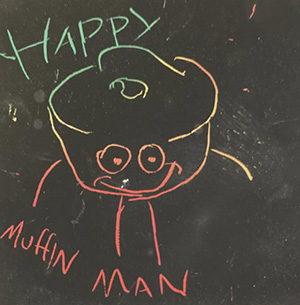Lack of Control and Feeling Stuck
July is hard. June was hard. Covid was—and is—hard for many people. On top of that, there are many scary things in the world causing all of us existential distress and despair. We feel despair and hopelessness when we feel out of control of our lives. As a mental health professional, I have seen this major theme in sessions during Covid. Many clients “feel stuck” and are unsure how to move forward in their lives.
Feeling stuck is so normal, and this blog will focus on different things that can help us feel more confident and less stuck.
Is Focusing on Planning a Good Idea When We Feel Stuck?
In Atlas of Your Heart: Mapping Meaningful Connection and the Language of Human Experience, Brené Brown talks about how a lack of control can cause us to feel vulnerable and unsafe. This feeling can be frustrating and at times intolerable. We lose the present moment when we focus on what might happen next.
 Let’s look at the role of planning. It can be a double-edged sword. Sure, at times, making plans to give ourselves something to look forward to can be an effective way to build gratitude. It can help us feel we have something to control. Picking other things to focus on can be a healthy distraction in the short-term and can even help motivate us at times. As an example, my client and I like to joke about focusing on making muffins when everything else feels out of control.
Let’s look at the role of planning. It can be a double-edged sword. Sure, at times, making plans to give ourselves something to look forward to can be an effective way to build gratitude. It can help us feel we have something to control. Picking other things to focus on can be a healthy distraction in the short-term and can even help motivate us at times. As an example, my client and I like to joke about focusing on making muffins when everything else feels out of control.
However, it can be unhealthy if we become hyper-focused on one thing, such as perseverating, or hyper-focusing on planning or forming rigid expectations in a relationship. Long-term avoidance can hurt us if we don’t take time to develop insight into our thoughts and feelings that are related to feeling stuck and unsafe. Insight can lead to identifying healthier patterns in our lives.
How Can We Teach Ourselves to Be Aware When We Are Stuck?
So, how do we do that? How can we teach ourselves to be aware when we are stuck? Are there particular circumstances when we get stuck looking for control in our lives? And what tools can we use to help break our stuck feelings? While many of us have tried therapy, exercise, and meditation, at times, some of these go-to strategies leave us wanting more.
First, take an inventory and ask yourself these questions:
In Atlas of the Heart, Brown talks about the importance of checking in and asking ourselves:
- Are you feeling irritated, a victim, pushing for clarity or answers that aren’t there?
- Are you pushing people away?
- Are you feeling helpless?
Another way to check in is to assess our level of stress and our overwhelm. Brown defines stress as feeling outside and/or inside pressure that you are struggling to manage or cope with, and she differentiates that from overwhelm, which is when we completely shut down.
Brené talks about the importance of knowing the difference, because when we are truly overwhelmed, we need breaks and time away in order to re-regulate.
Here are some tips and tools from the BPAR community, and Brené Brown herself!
“I know I am stuck when I keep doing the same thing even though it’s not working! To get unstuck, I accomplish things, even if it’s not related [to what I am feeling stuck about]. Doing something makes me feel powerful, or productive, like organizing. In doing so, it gives me energy to do things I want to do, or didn’t initially want to do.” — BPAR client
“When I am in a rut . . . I find myself in a lingering state of stagnation. It could be when my daily routines suddenly seem mundane or joyless. In Korean this feeling vaguely translates to, "답답해," or experiencing stifling or feelings of suffocation caused by frustration or the lack of freedom to act. These ruminations and sensations can become quite unhealthy, especially when I find myself spiraling downwards in self-loathing or being unkind to myself or others. [To get unstuck], first I try to take a moment to recenter myself through the lens of self-compassion. For example, I find that deep breathing and meditation can pull oneself out of these negative spirals. I also create my own moments to refocus, like going for a walk outside or listening to my favorite songs. All these coping mechanisms are useful reminders that I can be in control of my thoughts and feelings, and thus bring me back to solid ground.” — Adoptee from Korea
“Start. That’s what I do, put my head down, that’s the only way to do it. Prioritize the things you don’t want to do and you will feel invigorated by the things you want to do.” — BPAR community member
“The research shows . . . nothingness is the only way to really reset after overwhelm. I walk out of here and I go straight to the parking lot. And I just walk circles in the parking lot for 10 or 15 minutes and then I can come back and try to reset.” — Brené Brown
Try using Mantras: Right now, I’m in a place of not knowing, and that’s okay—I trust that I will get clarity at exactly the right time. — paraphrased from Brené Brown
What Should We Focus On When We Are Stuck?
Focus on what you ARE doing, not what you are NOT doing.
Serenity prayer: How can we constantly work to accept what we can’t change, find the courage to change the things we can, and have the wisdom to know the difference?
Journaling: Make a plan for both good days and bad days. Plan ahead for days when you might be distressed by a lack of control or even feel lonely. Set 1 to 2 non-negotiables as well as a few negotiable tasks that you will do on a good day and on a bad day.
Visualizations: Find or create powerful images that you associate with your own inner strength. Building your inner locus of control can help you to focus on what you can control. Maybe you want to try and find a spirit animal that represents your journey through hard times, one that prevails.
Meditations: Find meditations that focus on the practice of letting go of contracting. You can do this using a body scan to locate and release any muscles you you are holding tight or contracting. Try 10% Happier (Facing Uncertainty with Alexis Santos) or UCLA Health for some helpful meditations.

Bottom line: It’s okay to struggle and have bad days. You’re not alone in that. Learn how to identify unhelpful patterns as they arise. Think ahead about both short-term and long-term strategies to help you recognize when you start to get stuck so you’ll know it’s time to activate your inner and outer resources. Otter on!
Written by KC Craig
Boston Post Adoption Resources
Resources
, "How a Good Day and Bad Day Plan Might Help You During the Pandemic," Self.com (October 14, 2020), https://www.self.com/story/good-day-bad-day-plan.
Brené Brown, Atlas of Your Heart: Mapping Meaningful Connection and the Language of Human Experience (New York: Random House, 2021).